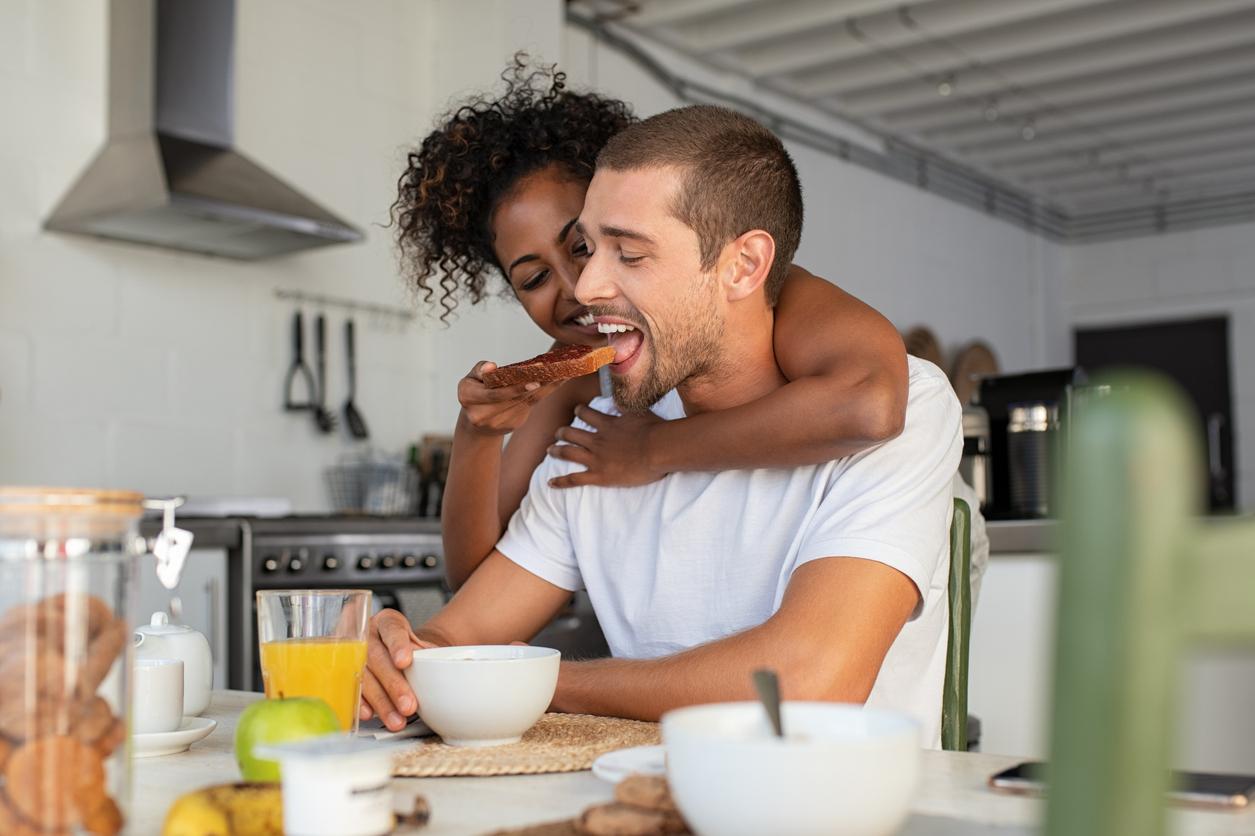
More intimacy, less performance-oriented sex
Even if you have been married for a long time, talking about sex is often difficult. Sexologist and doctor Marjan van den Berg notes that couples sometimes talk about their sex life for the first time at her consultation. “They argue about other things, but the lack of sexuality and intimacy is the underlying problem. Then they need me to get in touch with each other.’
What questions do people come to your practice with?
‘People come with erection problems, menopausal complaints, pain during sex or with questions after cancer treatment. The result is sometimes that people stop touching each other. For they fear that touch may suggest more. That sex follows or should follow. As the years go by, people move more often from lust to intimacy. They need that more, but find it difficult to say that to each other. With age, sex becomes less performance-oriented and more about loving touch.’
What do you say then?
‘That you can have sex in many different ways. Even without sexual intercourse. Women sometimes come alone, without their partner, because they feel that ‘they’ are the problem, because they ‘don’t feel like it’ anymore. Then the next time I invite the couple together. It is your challenge; it doesn’t help to say what the other should or should not do.’
So talk. About sex.
‘It is extremely important to share your feelings and wishes. But people find that difficult, especially if there are defects. Tensions then arise if things don’t go ‘the way they should’. An erection should be successful, for example. He or she thinks: a lot is not possible due to erection problems. That’s a misconception. My advice is: go and explore together what is still possible. Talk to each other. You don’t have to do this talking in bed, rather not even. Go for a walk. The best conversations take place in a car, because that’s when people look forward and not at each other. Try to create space and treat each other with respect – then beautiful things can happen.’
What do most people not know about sexuality?
‘That there is no such thing as ‘what is normal’. What one person finds stimulating or pleasant, the other does nothing. It’s not always the woman who doesn’t want to. They are almost as often men. And it’s a misconception that Viagra helps make sense; that only helps the blood supply. Sex drive consists of hundreds of different elements. What not everyone knows: there are people who are sexually extremely active into old age, others are not. The latter should not be a problem either. If you decide together that it’s a closed chapter and other forms of being together are enough for you, that’s fine.’
What can you do with desires if you no longer have a partner?
‘When you get older and lose your partner, you can lose an important sexual experience. You may feel extra lonely because of that. Who should you tell that to? As a single person, it is difficult for you to discuss this with your children. Or partners live separately from each other because one of them lives in a care home. Then you can look for other ways to meet intimacy, although there is no one-size-fits-all solution. You can ask for a hug. People need touch. That could have something to do with sex, but it doesn’t always have to be.’
Why is touch so important to humans?
‘People naturally like to cuddle and it is good for your physical and mental well-being. That doesn’t always have to be sexual; touch is a human need. When touched, the hormone oxytocin is produced, which increases feelings of calm but also of pleasure.’
In which diseases and disorders does sexuality change?
‘Almost all diseases that are chronic can have an impact on sex life. Just because of the pain and fatigue that comes with it. The pain associated with rheumatic osteoarthritis, for example, can make it difficult to relax and enjoy sex. That, in turn, affects the mood. Some rheumatologists also advise having sex more often, because this reduces the pain and keeps the joints flexible.’
And drugs?
‘What many people do not know is that drugs for psychological complaints, such as antidepressants, have sexual side effects. Many people no longer reach orgasm. Some medicines for high blood pressure and cholesterol-lowering drugs can also influence feelings of lust; they can inhibit desire and arousal. Many doctors who prescribe this medication forget to tell you. I think that’s a loss. People experiencing this should go back and discuss it with their doctor again. Perhaps there is another remedy they can try.’
Can people also get more meaning due to a condition or use of medication?
‘Patients with Parkinson’s usually have less sex drive than before due to a shortage of dopamine, also known as the ‘pleasure hormone’. A small part of the PwPs, because they use medication, actually get a lot more sex drive than before. Some people behave sexually uninhibited after a brain haemorrhage; there is little that can be done biologically. It is sometimes difficult for partners to deal with that.’
What more should nurses or doctors do?
‘It would be good if doctors and nurses undergo further training. In hospitals in particular, there is not much knowledge about the changing sexuality of the sick or the elderly. It is still a taboo and we as health care providers should all strive to bring it up. People find it a difficult and embarrassing topic to talk about. Let us, as caregivers in nursing, at least make that as easy as possible. Fortunately, there is more focus on the need for intimacy as you become more vulnerable; At least that’s the idea I have based on what you see and hear in the media. Also on the work floor it happens more often that nurses and interns ask me for information. That is a positive development.’
dr. Marjan van den Berg is a physician and sexologist NVVS. She studied medicine in Groningen. After her PhD she worked in various places in healthcare. Since 2012, she has been working at several institutions in the north of the country: in two hospitals in Assen and Zwolle, at PsyQ and in her own practice in Groningen. She treats people with problems with sexuality, often combined with a physical or psychological condition.
This article previously appeared in Plus Magazine February 2020. Want to subscribe to the magazine? You can do that in an instant!
Sources):
- Plus Magazine















